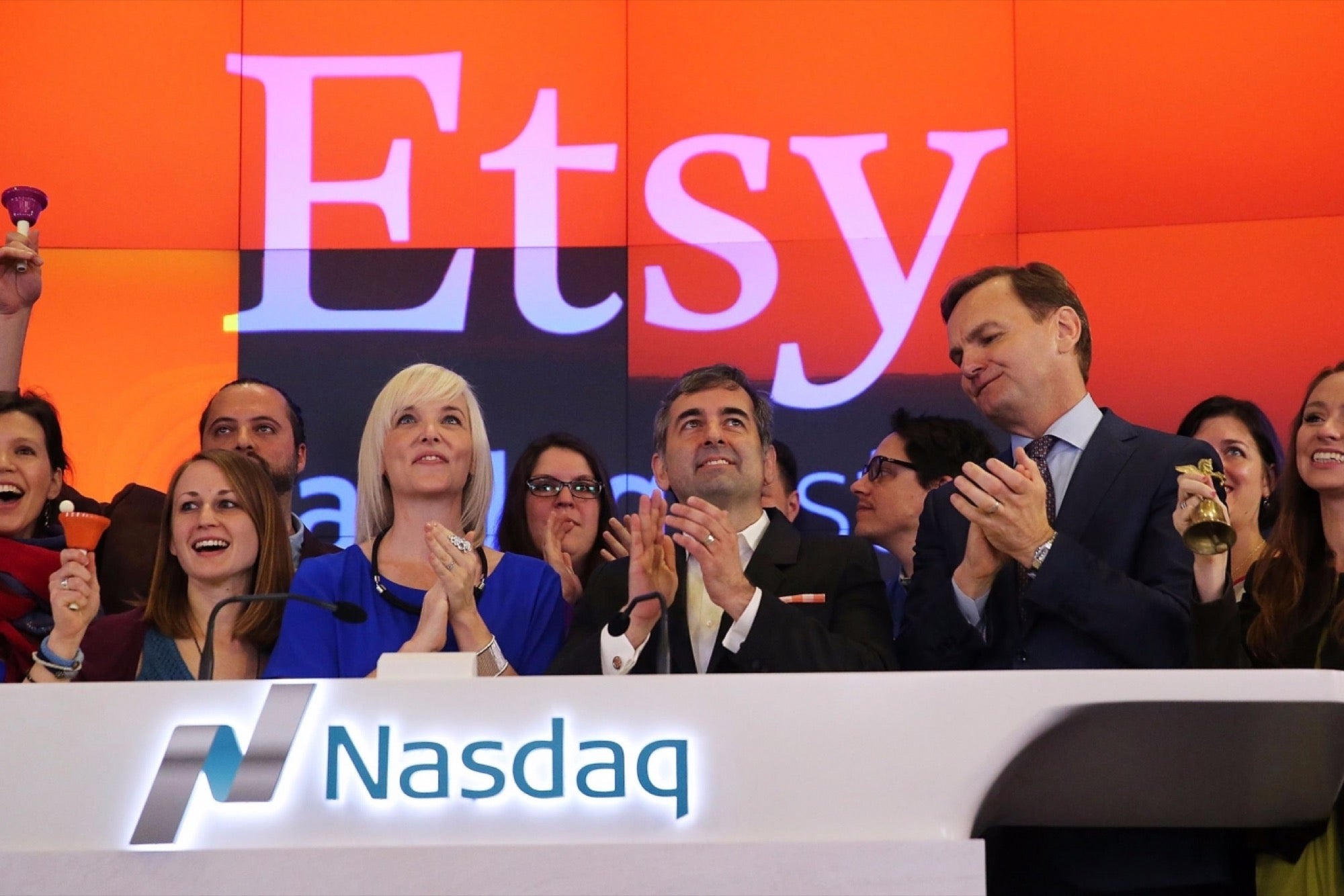Etsy Made Its First Profit as a Public Company -- and the Market Loves It Its stock soared as much a 12 percent in after-hours trading.
By Rob Price
This story originally appeared on Business Insider

Etsy is finally profitable.
The crafty online marketplace posted its quarterly earnings on Tuesday, and reported its first quarterly profit since going public in April 2015.
The market loved it: Its stock soared as much a 12 percent in after-hours trading.
Google
Here are the key numbers:
- Revenues of $81.8 million (vs. analyst expectations of $75.2 million, according to Bloomberg), up 39.8 percent year-on-year.
- Active sellers jumped from 1.4 million to 1.6 million in Q1 year-on-year.
- Active buyers also leapt YoY -- from 20.8 million to 25 million.
- Etsy turned $1.2 million in profit for the quarter, compared to a $36.6 million loss this time last year (analysts had expected another loss-making quarter).
All in all, it's good news for the company. But to keep things in perspective: Its stock is currently at £9.48 in after-hours trading -- well below its $16 IPO price last year.
In a statement, CEO Chad Dickerson said: "Our financial results in the first quarter were driven by our strong execution. We supported 1.6 million active sellers and 25.0 million active buyers, who together generated nearly $630 million in GMS. The second quarter is also off to an exciting start with the launch of our newest high-impact seller service, Pattern by Etsy, and a host of other products and seller tools that we believe will build long-term value for our community. We are as committed as ever to our vision of reimagining commerce and are looking forward to a productive year."
While the market has reacted positively, the reaction from analysts has been mixed. Morgan Stanley has raised its price target for Etsy stock from $8.50 to $9; likewise Wedbsh raised its target from $9 to $10.
But Roth Capital Partners takes a more pessimistic view in an analyst note, reiterating its sell rating, writing: "Despite the beat, it left FY16 sales growth guidance unchanged, leading us to believe it's either being conservative or growth will slow as the year progresses. We still remain concerned its business is deriving the bulk of growth from seller services while marketplace growth continues to decelerate."









